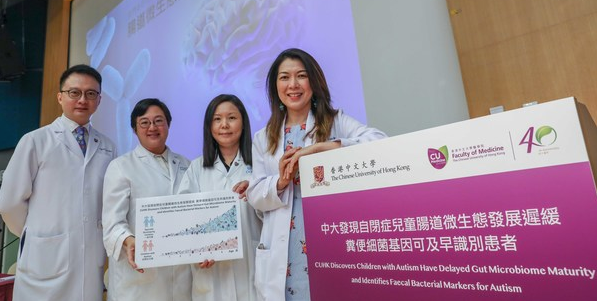
image credit- prnewswire
The Faculty of Medicine of The Chinese University of Hong Kong (CU Medicine) reports a ground breaking discovery that children with autism spectrum disorder (autism) showed delayed gut microbiome maturity compared with typically developing children. They had an underdeveloped gut bacteria that is not related to their diet.
The research team examined stool samples of children with autism (a neurodevelopmental disorder) and identified significantly fewer bacteria linked to neurotransmitter activities and five unique species of bacteria that are not typically found in the guts of children without the condition.
These findings highlight the potential of non-invasive bacteria markers for early diagnosis and treatment for children with autism.
Professor Francis KL CHAN, Dean of Medicine and Director of the Centre for Gut Microbiota Research at CU Medicine, said, "We are hopeful that our findings could resolve the unmet need of autism diagnosis. Our study supports the potential role of non-invasive prediction of autism based on faecal bacteria markers and age-related bacteria development profile. Future therapeutics targeting reconstitution of gut microbiota in early life and increasing abundance of neurotransmitter-synthesised bacteria should be explored for autism spectrum disorder."




